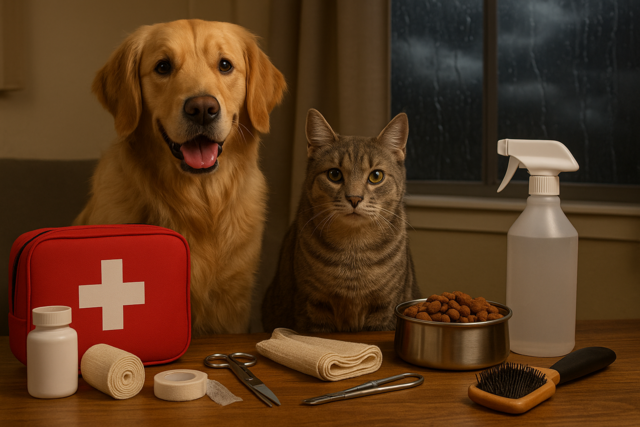We have talked about how important it is to be prepared and professional as a pet care provider, but this does not mean that you cannot enjoy your job on a personal level. After all, you probably decided to become a dog walker or pet sitter because you were tired of your impersonal career path and wanted to do something you really loved. You can develop personal relationships with all your clients while still being a professional.
Loving Your Work
If you have that deep wellspring of love for animals in you, your pet sitting or dog walking business will be a success because every animal will recognize that love in your eyes. He or she will know without a doubt that you have a soft heart, gentle hands, a comfortable lap, and above all, the love and enthusiasm needed to shower them with affection, exercise, or whatever else they will need. Animals are very perceptive!
Pet care gives you permission to be playful with your regular animal customers. Making up funny nicknames for the animals you care for, inventing new games to play with them, and bringing the occasional treat or new toy are all ways to show you care and let your clients know that you see their pets as individuals.
Get to know your clients as well, ask about their families, ask about their children, and above all, listen. If they mention that a special event is coming up, or there is a family illness, offer an extra day of dog walking or pet sitting free of charge to help out and lessen their burden. Your personal care will be remembered.
Gift Giving
The holidays are a wonderful time to remind your customers how valuable they are to you. Sending out holiday cards to your loyal clients is an inexpensive way to thank them for their business. You might want to get a picture taken of you with your pets for inexpensive holiday cards that any pet owner will be sure to love. A handwritten note in each card will be the perfect touch.
In addition, send holiday greetings to your associates, including groomers, veterinarians, and local shelters. Anyone you network with during the year should be remembered at the holidays, and thanked if they referred anyone to you.
Of course, the animals should all get a little holiday gift of their own. There are so many options for this depending on the type of animal. A few choices might be:
|
� Festive holiday bows for dogs or cats. � A new scarf for dogs or cats. � Small packages of treats for dogs or cats. � New chewy toys. � A catnip mouse. � For birds, a new wooden chew for the cage. � For birds, a new bell, or mirror. � For rodents, new chew sticks or crawling tubes. � For snakes, a warming rock. � For snakes, a small box of grasshopper treats. � For clients, personalized ornaments with a picture of their
pet(s). � For clients, pet themed photo frames. |
You will soon discover that as time goes on your clients begin to think of you as a friend as well and you will get gifts from your furred and feathered friends at the holidays. Cherish these signs that you are one of the family as well as a professional!
When Sorrow Strikes
When you are close to the families that you work for, you will also have to face tragedy. When pets become ill or pass away, the grief can be devastating for pet owners. Because pets generally live shorter lives than humans do, it is a given that we will face heartbreak more than once in our lives as pet owners, but it does not lessen the pain at all.
When a client turns to you for support or guidance, recognize the honor they are bestowing on you. They know that you understand that this is a loss that goes far beyond "just a cat," or "just a dog." Individuals who lose pets go through all the stages of grieving, including anger, denial, acceptance, and healing. As someone who loved and cared for their pet, you must give them the opportunity to grieve and acknowledge their pet's place as a member of the family that has been lost. Do not minimize their pain or loss in any way.
Listen to a grieving client. Share a special memory, cry with them, and reminisce a bit. Let them know that their pet will remain in your heart. Acknowledge their loss with a card and a small gift, perhaps a plant. You may also want to consider a donation to the Humane Society or to a shelter in the pet's name. If the animal were adopted from a particular agency, it would be an especially moving gesture to donate to that organization as a memorial.
However, there is one area in which you cannot help a client who is facing a tragic situation. You should never advise a client on whether to euthanize a pet. No matter what your personal belief is or what the medical situation is a life or death decision must always rest in the hands of the pet's owners. As a pet sitter or dog walker, you do not have the authority or the right to make any suggestions either way on euthanasia. However, you can let your client know that you understand how much they are struggling and that you will support whatever decision they make.
Handling Difficult Clients
You will inevitably run into a difficult client. Whether it is over a billing dispute or something serious such as how you handled an emergency, you must know how to deal with an irate or dissatisfied customer appropriately. Diplomacy and professionalism are vital to preserving your reputation and, if possible, salvaging the client relationship.
Recognizing and Communicating with Difficult Clients
Most of the time your clients will be pleasant and easy to work with because you share a common bond, a love of animals. Nevertheless, occasionally you will meet a person who is cantankerous by nature and seems never to be satisfied. You will probably recognize them early in your relationship. These are the clients who always seem to be in a bad mood and have negative comments about everything from the weather to traffic. These are the clients who have to be handled with kid gloves.
No matter how much the other person antagonizes you, remain calm and professional. Keep in mind that although the person may insinuate things about you, the conversation should not turn into a personal attack on the other person. Keep the conversation focused on the situation at hand.
If a client demands to know why you will not work with a dog that is behind on his vaccines, explain the safety and health concerns. If the client insinuates that you must get kickbacks from the area veterinarians, ignore the temptation to rise to the bait. Simply repeat your concerns for the health of the animal and remind them that as a professional you must follow the laws of the state regarding animals being properly vaccinated. Turn away anger with facts, not emotion. Facts are your best weapon against the unreasonable anger of a client.
To avoid any communication problems be sure to ask detailed questions when you begin working with new clients. If they volunteer information, clarify it. Some examples of questions that can draw out additional information and clarify details include:
"What do you mean when you say Reilly gets upset when it storms? Does he just pace, or does he get physically sick?"
"When you ask me to be sure to tire the dogs out on their walk, what do you have in mind? Will a half-hour be enough, or do they need a full hour of activity?"
Do you see how the above questions gently led the client to give you more information? This way they cannot later accuse you of not understanding what they wanted or ignoring what they told you.
Apologizing Properly
When a misunderstanding does arise, there is nothing wrong with apologizing for the misunderstanding. This does not mean you are admitting fault, it simply means that you are sorry that there was a miscommunication somewhere along the way that led to your client being unhappy. Saying, "I am so sorry there was a misunderstanding. I know you are upset. Let us see if there is a way we can resolve this," will usually defuse a client's anger. By acknowledging their feelings and offering to find a solution, you are giving them a sense of control.
Offering a discount on the next pet sitting or dog walking session may be a solution. It is preferable to a refund because it will keep the client coming back and after all, you did already perform the service that is in dispute. If they insist on a refund, you may give it to them, but try to keep this to a minimum. You do not want to get into the habit of doing this, as it may encourage others to complain in hopes of getting a refund. Remember, you are a professional performing a service and deserve to be compensated for your work.
Unreasonable Demands
What if you have a client who contacts you at the last minute every time and insists that you schedule them for pet sitting? Do not feel that you have to keep squeezing them in, you do not have to inconvenience yourself and juggle the schedules of other customers to accommodate one person who consistently ignores the rules that you have set down for your business.
After explaining your rules about calling ahead for reservations, and sending your brochure or other written information, you may want to add a new policy for these last minute callers. A surcharge for reservations with less than 48 hours notice will quickly motivate most clients to make contacting you a priority when making travel plans.
Do not allow clients to use guilt as an advantage against you when booking. The reasons they are traveling have nothing to do with you. It may sound harsh, but whether it is a wedding, class reunion, or urgent business meeting, you should not be asked to bump another job to accommodate them at the last minute. Tell them you are sorry that you cannot help, suggest another experienced pet sitter you know and ask if they would like to be called if you have a cancellation.
Dangerous Situations
There is nothing more upsetting than showing up to take a dog for a walk or take care of pets in a home only to discover that one of the pets is so territorial that you cannot enter the premises. While most pets are fine when their owners are not around if they have already become acquainted with you, there are those rare animals whose personalities change drastically when they are away from their masters. Some animals may even try to bite you.
The Non-Paying Client
Occasionally, you will get a bounced check or someone who does not pay a bill. Most of the time this is because someone miscalculated or forgot, so do not jump to conclusions or get angry the first time it happens.
The first time a check bounces, simply call and politely tell your client that there seems to have been a mix-up at the bank and that their check was returned for insufficient funds. Ask them how they would like to handle it. It is also a good idea to have a policy in place that requires clients to pay any bank charges incurred for overdrafts and a small fee for bounced checks.
If you do not receive payment after two phone calls, send a formal letter requesting immediate payment. It should be firm but not threatening and indicate when you called to resolve the problem. A closing that mentions your desire to keep them as clients will keep things on a friendly note.
If a bill has not been paid in sixty days, you should resend a copy of the bill with a short note printed across the bottom in a contrasting color ink (red is best) that indicates the payment is now past due and payment is expected immediately. It might look like this:
We appreciate your business and always enjoy working with your pet. However, this account is now 30 days past due. Please remit payment in full within 5 days to keep your account current.
If you still have no payment after ninety days, the bill becomes delinquent and you should send a much sterner (although still polite and professional) message that will alert your client that you are willing to take further action to pursue payment:
Our records indicate that this account is DELINQUENT with an outstanding balance of $____________ . We provided these services in good faith and cared for your pet with loving care. We must inform you that if your balance is not paid in full in ninety days, we will have to turn your account over to a collection agency or file against you in small claims court.
























